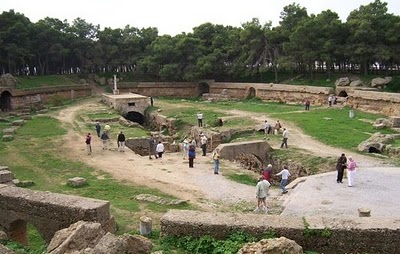 Lately, I’ve been trying to figure out the Trinity. One of the things that I’ve been wrestling with is the idea of Jesus being of the same substance (homoousios, ὁμοουσιος) as the Father while also being a distinct person (Hypostasis, ὑποστασις) . Likewise for the Holy Spirit. How can they be of the same substance or essence, but be three distinct persons? Here is a thought that is completely inadequate in some regards, but may be helpful for understanding how something can be three things but of the same substance.
Lately, I’ve been trying to figure out the Trinity. One of the things that I’ve been wrestling with is the idea of Jesus being of the same substance (homoousios, ὁμοουσιος) as the Father while also being a distinct person (Hypostasis, ὑποστασις) . Likewise for the Holy Spirit. How can they be of the same substance or essence, but be three distinct persons? Here is a thought that is completely inadequate in some regards, but may be helpful for understanding how something can be three things but of the same substance.
In horticulture there are several ways of growing plants, most commonly people plant seeds and watch the plant grow, but there is also the technique of cutting. In cutting, you simply snip off part of the plant and plant the cut piece, allowing it to develop roots. It could be simple enough to say that the trinity is just like a cutting, producing multiple objects, but from the very same plant or substance (homoousios); however, I would like to take the example a little further and talk about the apple tree.
If you didn’t know this, every Fuji or Gala apple that you have eaten essentially came from the same tree. I do not mean a single tree that is overworked, or produces an insane amount of apples. I mean that every Fuji flavored apple tree is a cutting originating back to a single Fuji apple tree. You cannot take the seeds out of a Fuji apple, plant them, and then get a Fuji apple. You will most likely get a very bitter, sour-tasting apple. Apple seeds in their genetic makeup randomize the flavor of the apple; therefore, in order to get the exact same taste you must take a clipping from the original tree. Only the original tree can produce the Fuji apple.
Now let us bring it back full circle to the trinity. Imagine that you have three apple trees standing in front of you. Each has one of those nice little tree placs. One says Father. The second Son. The third Holy Spirit. How would you know that they are of the same plant? You would have to taste their fruit. If all three produced the same apple taste, then you would know that they are indeed of the same original plant or substance (homoousios). Yet, as you stand before them, you notice that what you have just tasted is not a piece from three distinct branches of the same tree, but three distinct trees. They are like the three distinct persons (hypostasis). They are most certainly three distinct objects, but they are really part of the same tree. Oddly enough, the three plants are actually one plant. In relation to the trinity, there are not three gods (tritheism), but three forms of the same substance! You are assured that they are one and the same but three by the very fruit that they produce. Each plant is distinctly and exactly the same thing.
I fully recognize that this analogy is lacking in some areas. Indeed, the trinity is a divine mystery. In order for it to be a more adequate representation of the trinity as affirmed in orthodox Christianity, the first tree would be uncreated (eternal) never having a beginning as a seed. Likewise, the second and third trees would could not to have been said as created at a later time, but eternally coexisting with the original tree, having been begotten eternally (a very difficult concept to grasp). So the analogy breaks down, but I do think it helps to capture the idea of three persons in one substance.
Anyway, I hope that this post may help some of you begin or further contemplate the triune god. Blessings


